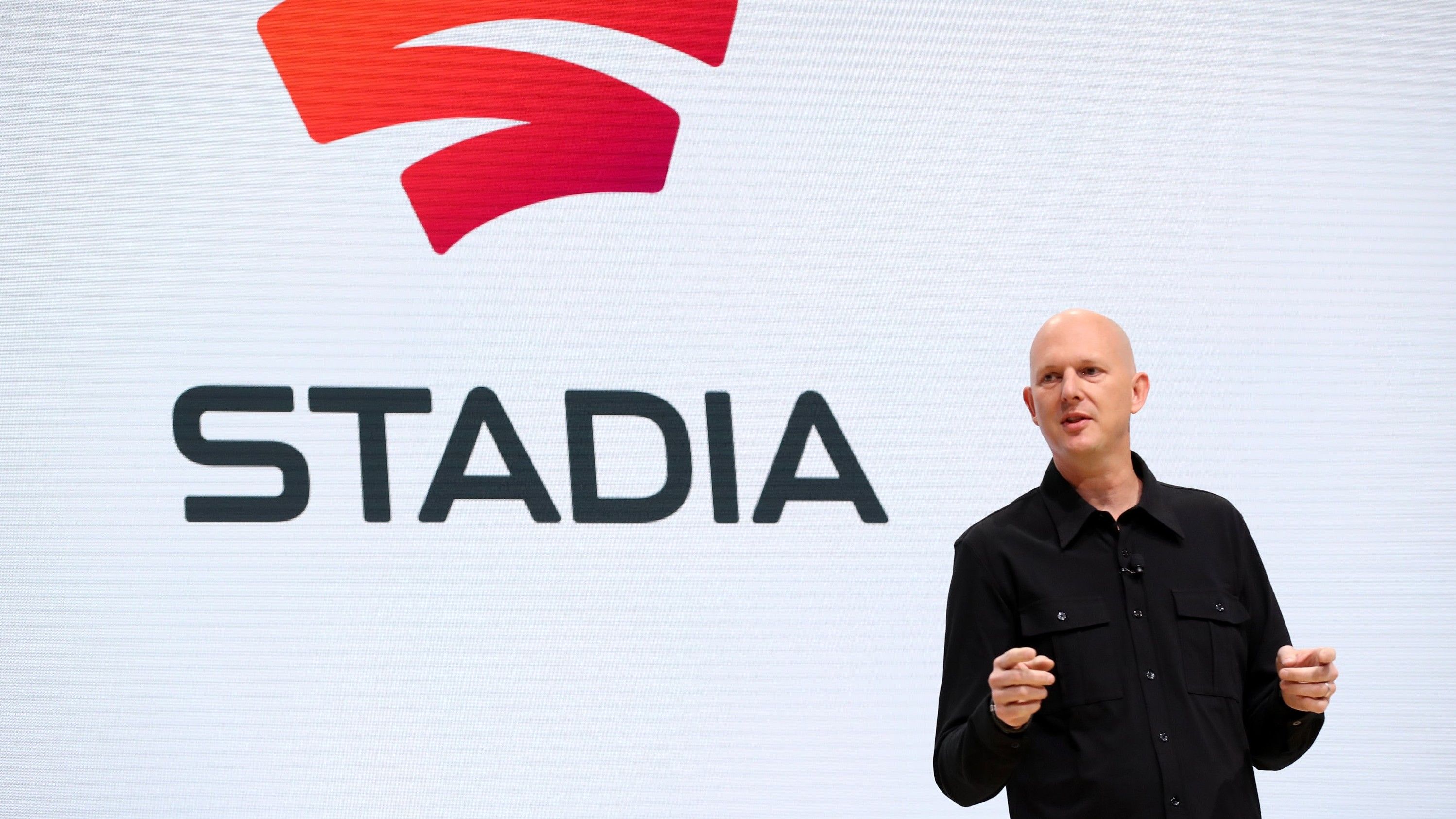A new class-action lawsuit has been filed against Google claiming that the company made deceptive claims about the framerate and resolution performance of games on its cloud gaming service, Stadia. Google Stadia was revealed at the Game Developers Conference (GDC) in 2019. It was marketed as a service that would allow people to play video games without the need for a console by streaming games from Google servers to a person’s phone, tablet, Chrome browser, or Chromecast. Google first started publicly experimenting with cloud gaming in 2018 with Project Stream, which, due to a partnership with Ubisoft, allowed people to stream the beloved game Assassin’s Creed Odyssey for free through Google Chrome.
Since the beginning, Google has marketed Stadia as having more processing power than the most powerful consoles at the time of its announcement–the PlayStation 4 Pro and the Xbox One X–thus the service would run these games better than its console rivals. Only a handful of games were available at launch and Stadia’s library has continued to be a weak point for the service. At the beginning of February, Google announced that it was shuttering its two first-party studios in Los Angles and Montreal, shifting its focus primarily on third-party games.
A post on ClassAction.org (via GamesIndustry.biz) detailed the class-action lawsuit alleging that Google intentionally made deceitful claims about the quality of its service in order to make more money from consumers. Google used examples of games such as Doom Eternal, Red Dead Redemption 2, and ongoing service game Destiny 2, which demand expensive, high-performance PCs and gaming consoles in order to reach the advertised 4K resolution at 60 frames per second (fps). Questions arose from media outlets and Twitter about Stadia’s performance for those who have low internet connection speeds and Google doubled down on its claim that games would run at 4K/60fps for those users.

Right before Stadia’s launch, Google tweeted that its service would perform at less than 4K/60fps for those with slower internet connections. The suit says that this was done “quietly” and that it was “an apparent effort to cover up the incorrect information that would soon come to light.” The post goes into further detail about a previous lawsuit with similar allegations that Google settled, sending $10 coupons to buy games on Stadia’s store to “current and former subscribers.” The plaintiffs in that lawsuit tried to settle with Google in private, yet Google “refused to provide Plaintiff fair and reasonable legal fees” that were only “a small percentage of the time that Plaintiff’s counsel spent on this matter” according to that suit.
The way Google advertised Stadia and the validity of its claims of Stadia’s performance have been under question since its announcement. Other cloud-based gaming platforms launched after Stadia, like Amazon’s Luna platform and Microsoft’s streaming service tied to Xbox Game Pass (formerly named Project xCloud), but performance is an issue that hangs over the heads of many video game streaming platforms. Access to high-speed internet connections are not widely available in the U.S., especially not in rural areas. Many places where fast internet is available also have to deal with caps on how much data can be used before extra charges occur, so it may be a while before video game streaming can be widely adopted.
In any case, Stadia users who were affected by this problem do not need to do anything until the lawsuit is settled (if it does). Afterwards, they would need to file a claim online to benefit from the settlement. There is more information about how to file a claim on the source’s website.




